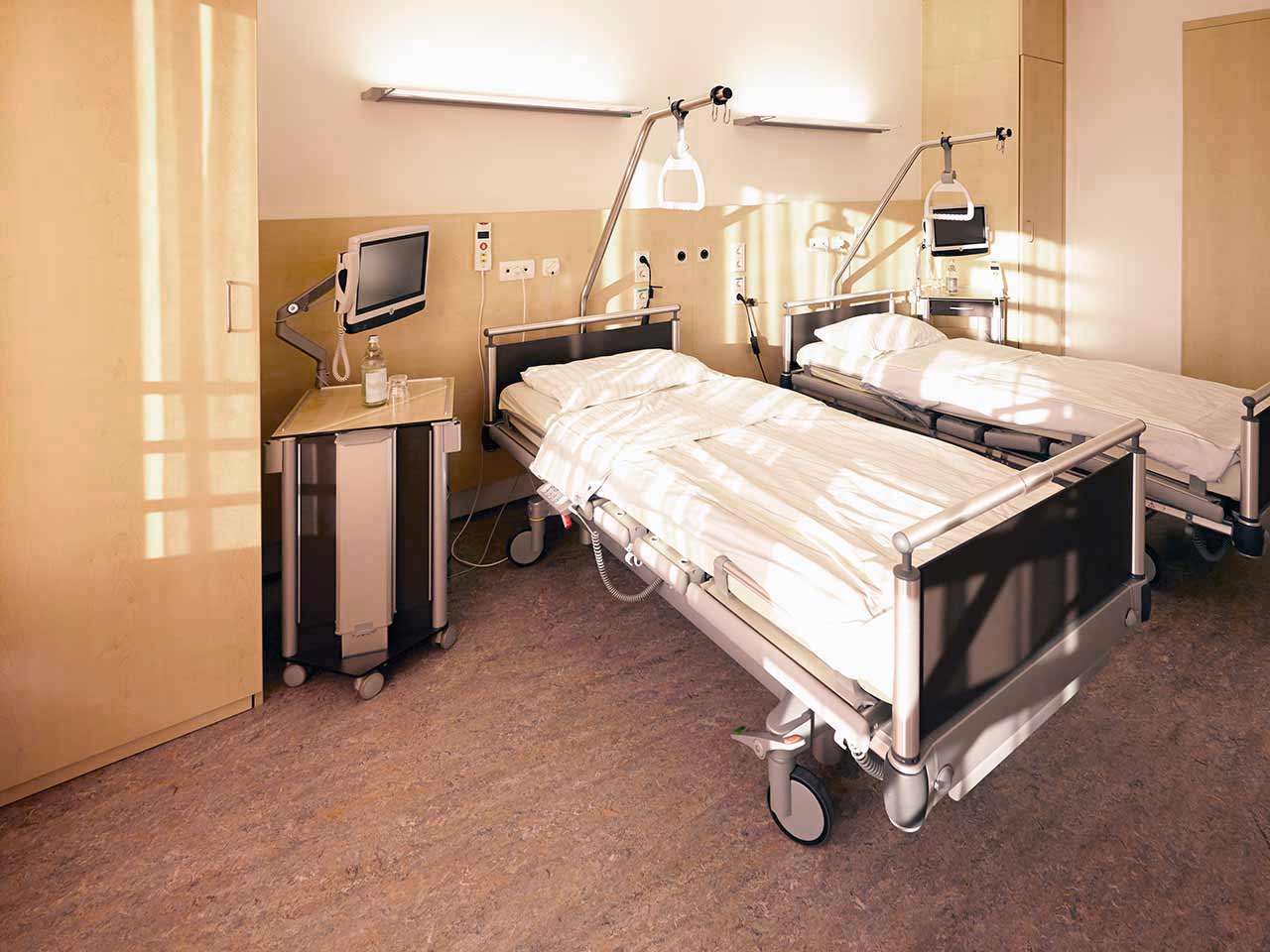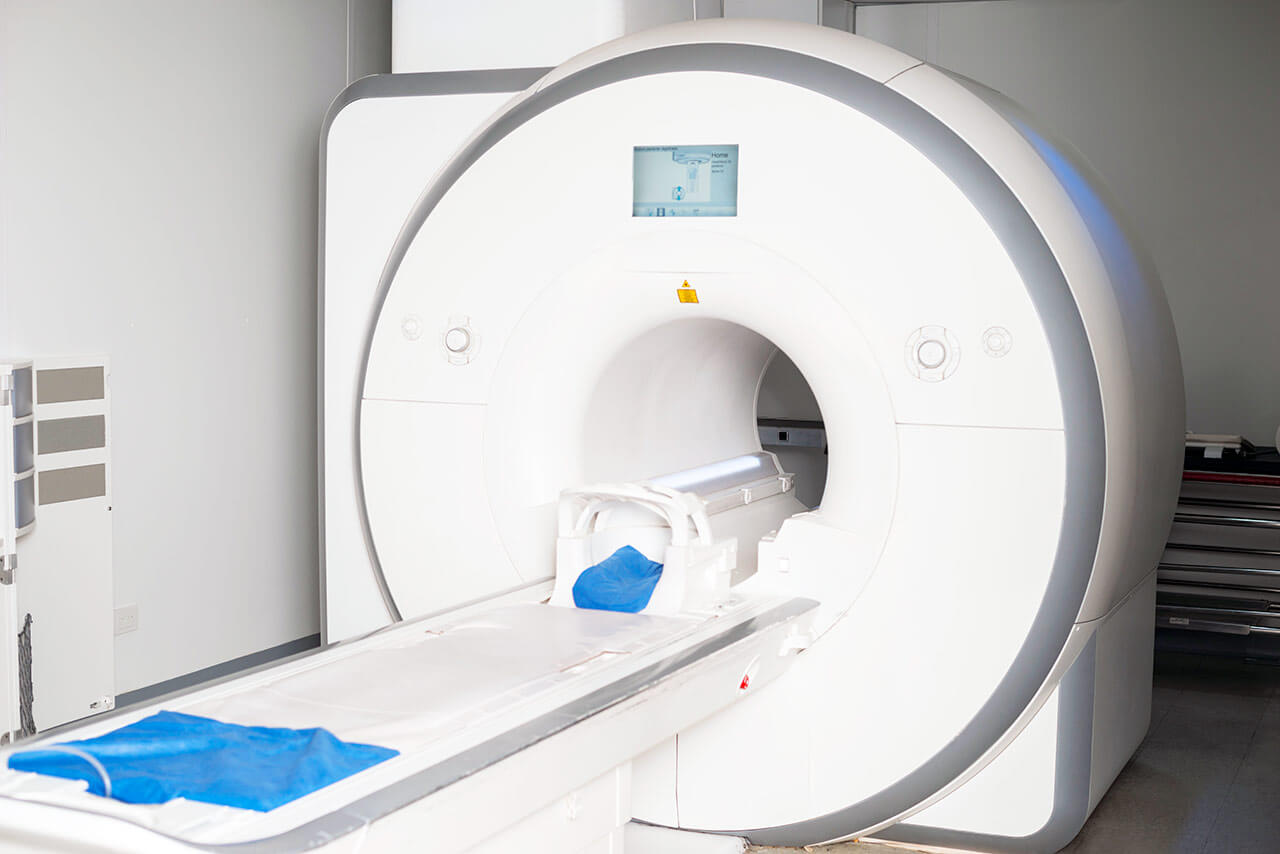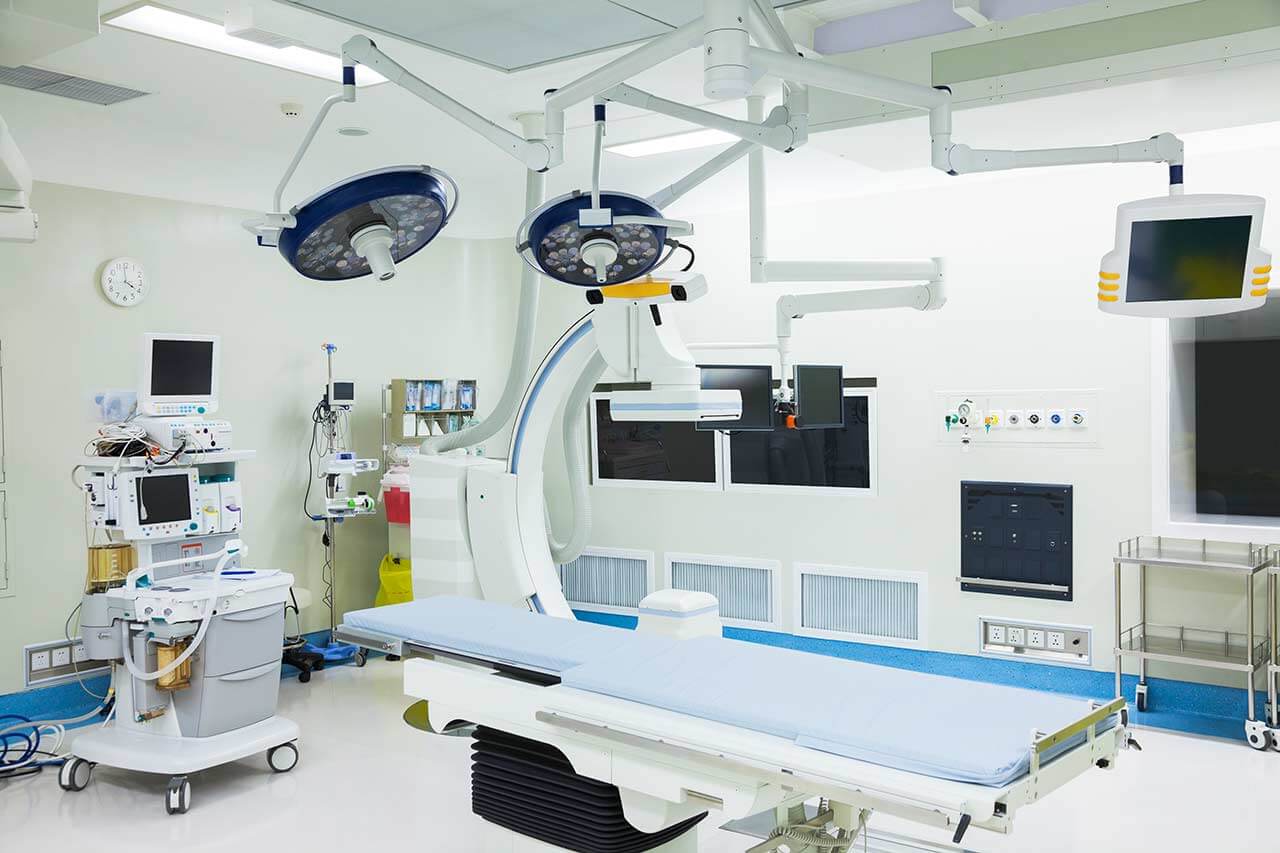
The program includes:
- Initial presentation in the clinic
- clinical history taking
- review of medical records
- physical examination
- laboratory tests:
- complete blood count
- biochemical analysis of blood
- tumor markers
- inflammation markers (CRP, ESR)
- blood coagulation analysis (aPTT, PT, INR)
- ultrasound of the abdomen
- CT/MRI scan of the abdomen(if clinically indicated, additional cost is 650/1200€)
- colonoscopy with biopsy, histological and immunohistochemical study
- nursing services
- services of all leading experts
- explanation of individual treatment plan
Required documents
- Medical records
- Esophagogastroduodenoscopy (EGD), MRI/CT scan (not older than 3 months)
- Biopsy results (if available)
Service
You may also book:
 BookingHealth Price from:
BookingHealth Price from:
About the department
The Department of Gastroenterology, Hepatology and Endocrinology at the Nuremberg Hospital offers the full range of medical services in the areas of its specialization. The department diagnoses and treats gastrointestinal, liver, and endocrine diseases. The team of doctors at the medical facility has state-of-the-art technical equipment and a perfect command of efficient treatment methods to provide patients with the best therapeutic results. In many cases, doctors use only drug therapy. In addition, the department has well-equipped endoscopy rooms, where diagnostic and therapeutic procedures are performed. Endoscopic treatment is performed for benign and malignant neoplasms, internal bleeding, and stenosis of different parts of the gastrointestinal tract. In the field of hepatology, the medical team is especially interested in treating hepatitis, cirrhosis, and alcoholic liver disease, and the department's endocrinologists help patients with hormone imbalances and diabetes mellitus. More than 5,000 inpatients and more than 3,600 outpatients are treated in the department every year. The department is headed by Prof. Dr. med. Alexander Dechêne.
The department's gastroenterologists demonstrate excellent professional skills in endoscopic procedures. The most common procedures performed in the department are gastroscopy (examination of the mucosa of the esophagus, stomach, and duodenum) and colonoscopy (examination of the mucosa of the colon and rectum). Gastroscopy and colonoscopy are also widely used for therapeutic purposes, for example, to remove polyps, stop internal bleeding, and eliminate stenoses. For the patient's maximum comfort, endoscopic procedures are performed with sedation, which eliminates pain. In most cases, endoscopic diagnostics and treatment are performed on an outpatient basis without a mandatory hospital stay.
An important focus of the department's team of gastroenterologists is the diagnosis and treatment of gastrointestinal cancers, including colon, esophageal, and pancreatic cancers. The primary task of the specialists in cases of suspected gastrointestinal cancer is to conduct comprehensive diagnostics, which will allow them to develop the most effective treatment regimen, if necessary. The diagnostic protocol includes a clinical examination, laboratory tests, endoscopic examinations, and imaging tests. The department's gastroenterologists often manage to perform endoscopic tumor resection to treat early stages of cancer, but advanced stages usually require an open surgical intervention by abdominal surgeons. In addition to tumor removal, patients with stomach, colon, and pancreatic cancer are additionally treated with chemotherapy, radiation therapy, and other conservative treatments.
The department also has successful experience in the treatment of liver disease. The doctors mostly deal with hepatitis, cirrhosis, and alcoholic liver disease. Hepatitis is treated with intensive drug therapy supplemented by an individually prescribed diet. Complex forms of hepatitis, however, do not always respond to drug therapy, so the patient may require a liver transplant. Therapy for cirrhosis involves the intake of individually prescribed drugs aimed at combating the underlying disease that causes cirrhosis. The disease often leads to the development of severe complications, such as ascites, peritonitis, hepatorenal syndrome, liver cancer, etc. In such cases, the department's specialists provide the necessary additional treatment. As for the therapy for alcoholic liver disease, an important part of the treatment regimen is the intake of drugs, but the main condition for recovery is a lifelong refusal to drink alcoholic beverages.
Another focus of the department's doctors is the treatment of patients with endocrine pathologies. The specialists in this field are engaged in the diagnostics and treatment of thyroid, parathyroid, adrenal, and pituitary diseases. Dysfunction of these organs results in hormonal imbalances, which negatively affect the patient's general health condition. Most benign endocrine diseases respond well to drug therapy, namely hormone replacement therapy. As a rule, patients are treated on an outpatient basis, but a hospital stay is also possible whenever required.
The department's endocrinologists have special qualifications in the treatment of diabetes mellitus. They most often deal with type 2 diabetes mellitus in their clinical practice. A treatment regimen usually includes diet, smoking and alcohol cessation, regulated physical exercises, and the intake of individually prescribed antihyperglycemic agents. The last-line treatment is insulin therapy. As for the treatment of type 1 diabetes mellitus, insulin therapy is mandatory, either through injections or using an insulin pump. Patients with type 1 and type 2 diabetes mellitus are usually treated on an outpatient basis, but a hospital stay may be required in cases of critically low blood glucose levels.
The department specializes in the diagnostics and treatment of the following diseases:
| Gastroenterology |
|
| Hepatology |
|
| Endocrinology |
|
| Other diseases |
The department's range of therapeutic services includes:
| Gastroenterology |
|
| Hepatology |
|
| Endocrinology |
|
| Other therapeutic services |
Curriculum vitae
Qualifications
- 2008 Board certification in Internal Medicine.
- 2011 Specialization in Gastroenterology.
- 2011 Certification in Hepatology, German Society for Gastroenterology, Digestive and Metabolic Diseases (DGVS).
Research and Clinical Focuses
- Clinical hepatology.
- Therapeutic endoscopy and biliopancreatic interventions.
- Interventional oncology and palliative care.
Photo of the doctor: (c) Klinikum Nürnberg
About hospital
According to the reputable Focus magazine, the Nuremberg Hospital ranks among the top German medical facilities!
The hospital is one of the largest, highly specialized medical centers in Europe and positions itself as the maximum care hospital. The healthcare facility is an academic hospital of the Paracelsus Medical University in Nuremberg. It houses 42 departments, institutes, and highly specialized centers focusing on various medical fields. All the hospital's employees work hand in hand for the benefit of their patients. The specialists strive to provide top-class medical care for every patient. Moreover, the medical team always shows a humane attitude and understanding towards the patient's life situation, making every effort to support them during the entire therapeutic process.
The total number of beds in the hospital is 2,233. The medical team consists of more than 8,400 employees, including many world-famous doctors and professors who had their clinical training at the best medical facilities in Germany, other European countries, and the USA. The hospital admits more than 100,000 inpatients and more than 170,000 outpatients annually. The number of patients who come to the hospital steadily increases every year, which is the best confirmation of its high standards and outstanding treatment results.
The cornerstone of successful clinical practice is state-of-the-art technical infrastructure. The hospital offers its patients innovative technologies such as the Da Vinci surgical system, devices for stereotactic procedures, intraoperative radiation therapy, angiography, PET CT devices, high-intensity focused ultrasound, 64-slice CT scanners, and other advanced medical devices. The combination of cutting-edge technical facilities and the high competence of the physicians allows for the provision of effective treatment even in the most complex cases.
The Nuremberg Hospital is undoubtedly one of Germany's leading medical facilities, where patients benefit from modern infrastructure, precise diagnostics, effective treatment, and responsive care.
Photo: (с) depositphotos
Accommodation in hospital
Patients rooms
The patients at the Nuremberg Hospital live in comfortable single and double rooms. Each patient room is equipped with an ensuite bathroom with a shower and a toilet. Standard rooms include an automatically adjustable bed, a bedside table, a wardrobe for storing clothes, a table and chairs for receiving visitors, a TV, and a radio. The hospital also offers Wi-Fi.
If desired, patients can live in enhanced-comfort rooms. Such patient rooms are more spacious, and their furnishings correspond to the level of an upscale hotel.
Meals and Menus
The patients at the hospital are offered tasty and balanced meals three times a day: breakfast, lunch, and dinner. The patients have a daily choice of three dishes for lunch and dinner, while breakfast is served as a buffet.
If, for some reason, you do not eat all foods, you will be offered an individual menu. Please inform the medical staff about your food preferences prior to treatment.
Further details
Standard rooms include:
Accompanying person
Your accompanying person may stay with you in your patient room or at the hotel of your choice during the inpatient program.
Hotel
You may stay at the hotel of your choice during the outpatient program. Our managers will support you for selecting the best option.





